
Ring In The New Year With The FSF
Table of Contents
President's MessageFSF Generations: Fellowships Continue To Transform
FSF Fellow Testimonial: From Residency to Fellowship
Fellows Talk Fellowships: Did My Fellowship Make An Impact?
Recognizing Partners
The Generations Campaign
Back To Top
President's Message
Funding Fellowships – Who is Responsible?
 The
mission of the Foundation for Surgical Fellowships (FSF) is to provide
essential financial support for sustaining non-ACGME accredited
fellowships. The FSF acknowledges and thanks all who donated to the FSF in
2014. More than ever before, the FSF has received broad-based support. In
addition to support from industry, more individuals and more societies
donated to the FSF in 2014 than ever before. Specifically, we want to
express our gratitude to the SAGES, ASMBS, ASCRS, and the AHPBA for
their contributions to the funding of these fellowships in 2014. These
donations make a strong statement about the importance of the
fellowships. In addition, a special thanks goes to the Fellowship
Council for advocating on our behalf.
The
mission of the Foundation for Surgical Fellowships (FSF) is to provide
essential financial support for sustaining non-ACGME accredited
fellowships. The FSF acknowledges and thanks all who donated to the FSF in
2014. More than ever before, the FSF has received broad-based support. In
addition to support from industry, more individuals and more societies
donated to the FSF in 2014 than ever before. Specifically, we want to
express our gratitude to the SAGES, ASMBS, ASCRS, and the AHPBA for
their contributions to the funding of these fellowships in 2014. These
donations make a strong statement about the importance of the
fellowships. In addition, a special thanks goes to the Fellowship
Council for advocating on our behalf.
Funding of these fellowships is at a crossroads, despite the broad-based support in 2014. For economic and political reasons, some of the large donors from industry have significantly reduced support for future years. As previously disclosed, support for academic year 15/16 was significantly less than in previous years, and now that support has been further reduced for academic year 16/17. Our industry partners continue to work in a volatile and uncertain economic environment, and the level of support from industry in the future is unclear.
Despite that, the need for fellowship training is clear. More than 80% of graduating general surgery chief residents pursue fellowship training. In some cases the additional training is to meet a career goal, in other cases the fellowship training simply enables the surgeon to complete her skill set and develop mastery in her clinical areas of interest. The Fellowship Council oversees more than 180 non-ACGME accredited fellowships that provide advanced surgical training in Minimally Invasive Surgery, Bariatric Surgery, Flexible Endoscopy, Colorectal Surgery, HPB Surgery, and Thoracic Surgery. Most of these fellowships seek funding from the FSF, which has developed and implemented objective, arms-length, merit-based distribution of the available funding.
Going forward, funding for these fellowships requires the support of the entire surgical community. Additional donors and additional methods for funding these fellowships are urgently required.
Sincerely,
Dennis Fowler, MD, MPH
President
Foundation for Surgical
Fellowships
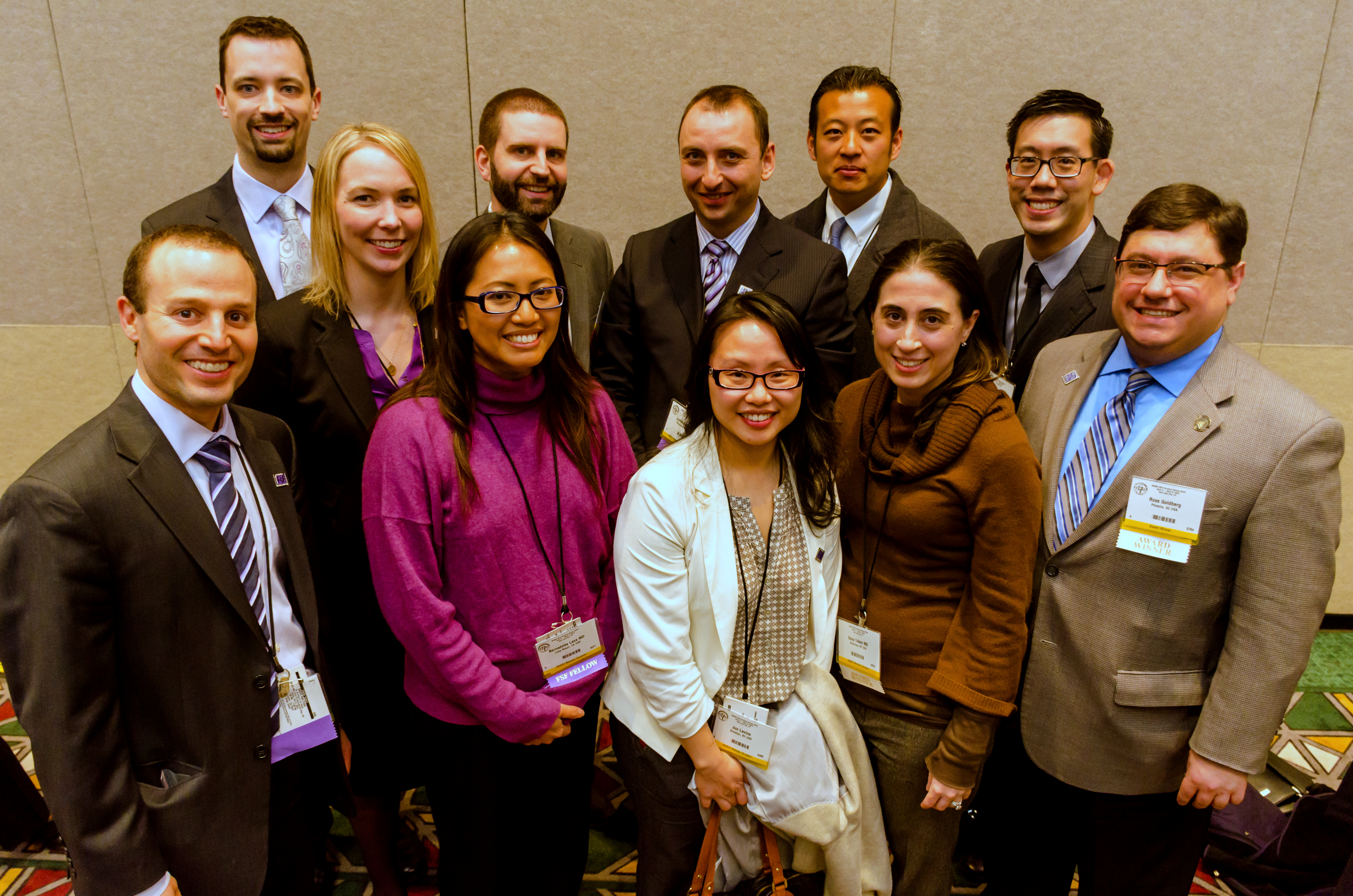
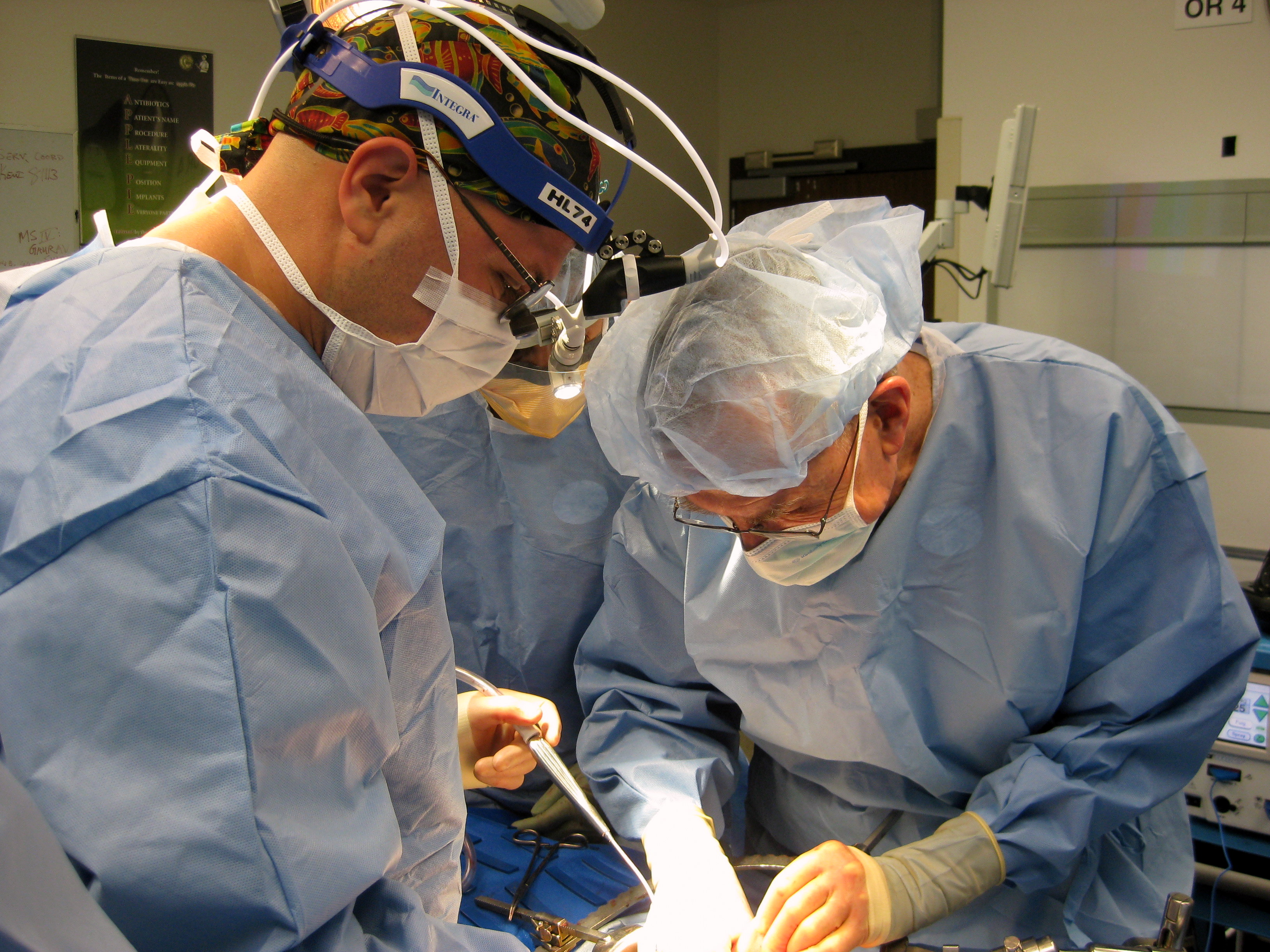
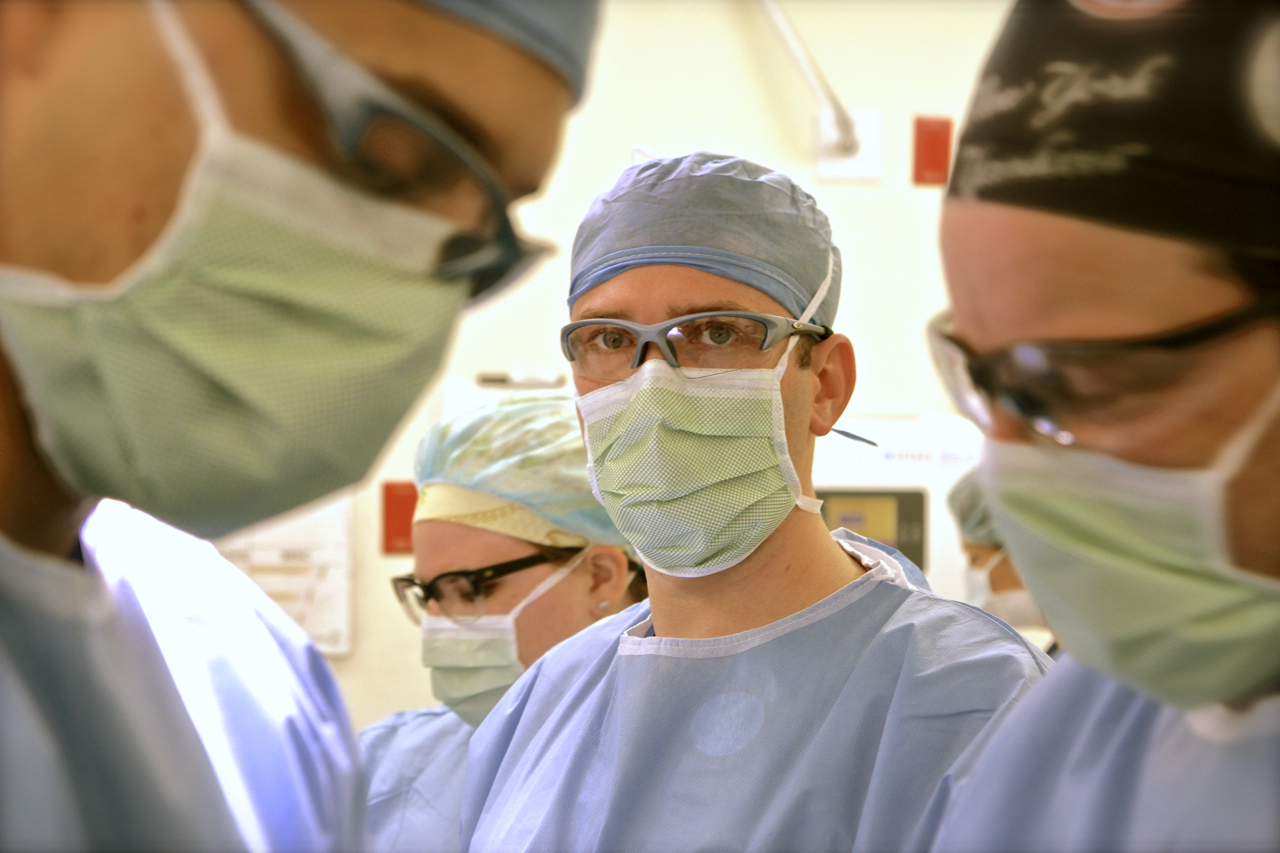
FSF Generations: Fellowships Continue To TransformFSF Generations: Ensuring That Future Physicians Receive The Same OpportunitiesWritten by Michele Riordon, MD, FRCSCDr. Michele Riordon is the newest member to join the Foundation for Surgical Fellowships Board of Directors. Dr. Riordon is the first board member who is a former fellow in a program funded by the FSF. Her fellowship experience demonstrates the value of postgraduate surgical training opportunities supported by the Foundation. Over the past two years, she has been working at the Royal Victoria Regional Health Centre just North of Toronto, Canada to develop a minimally invasive surgery program. Dr. Riordon joins a prestigious list of physicians who make up the board of directors at the FSF. Board President Dennis Fowler, MD said “Year after year, I’m astounded at the level of experience and knowledge we’re able to access with our board. We have a strong leadership foundation in place and we couldn’t be more pleased with the addition of Dr. Riordon to our board. Each of our individual board member’s deep professional background and passionate commitment to advanced surgical education has brought insightful perspectives to our board.” Dr. Riordon hopes to play a pivotal role in helping to provide future surgeons just starting out on their career path with the same opportunities that were given to her. ”Until graduating residents are comfortable with providing complex surgery using minimally invasive techniques, there will be a role for my involvement and FSF funded fellowships.”
Dr. Riordon, a 2011 Gold Star Award recipient for excellence in teaching medical students, completed her MIS/Bariatric fellowship at Weill Cornell Medical College – The Methodist Hospital in Houston under the guidance of Dr. Patrick Reardon. Her fellowship experience prepared her to embark on her current tasks of developing a MIS program, an enhanced recovery program and initiate department wide morbidity and mortality rounds, while also continuing to perform procedures and teach residents. When asked what inspires her as a surgeon she said, “I’m committed to minimizing the effects of surgery and getting patients back to enjoying their life as soon as possible. All the extra committees that I’m involved with are to improve patient care and patient experience.”In her spare time, Dr. Riordon is a bit of an adrenaline junkie with a passion for outdoor activities such as water and downhill skiing. She especially enjoys back-country skiing, leaving the resorts and chairlifts behind. She also loves to travel and is plannning a trip to Canada's Yukon Territory and to the Galapagos Islands.The Foundation for Surgical Fellowships looks forward to Dr. Riordon’s involvement, especially as she brings a unique perspective to help the Foundation provide and sustain post-residency fellowships for future fellows to come.FSF Generations: The Most Important Year Of My CareerWritten by Dennis Fowler, MD, MPHAlthoughI have had a long career as a surgeon, the most important year in my entire career was my fellowship. My training as a fellow enabled most of what followed. In 1979, against the recommendations of numerous mentors in my residency, I chose to pursue a fellowship in “Surgical Endoscopy”. This was no small decision, because it meant that I would not be in the operating room as a surgeon for the first year after completing my chief resident year. Like every graduating chief resident, I wanted to operate and take care of patients. However, my fellowship year was focused on upper GI endoscopy, colonoscopy, ERCP, and diagnostic laparoscopy. The program was at the Massachusetts General Hospital, where, because he was active as an endoscopist, even my mentor was questioned about his commitment to surgery.
The fellowship year was transformative in several ways. First, I learned endoscopic techniques that gave me skills most surgeons at the time did not have. I completed hundreds of each type of endoscopy during that year and I also learned the techniques of diagnostic laparoscopy 10 years or more before therapeutic laparoscopy became routinely possible (who knew). Second, it gave me better insight into the diseases of the GI tract. Third, I was immersed in a focused learning environment for a significant but finite period of time. My only responsibility was to learn endoscopy and staff resident endoscopy cases for the ward service. Fourth, I befriended my mentor at a level not usually achievable during the shorter rotations during residency.In mid-career I became a program director for minimally invasive surgery (MIS) fellowships. Between 1998 and 2008, I was program director for 15 MIS fellows in Pittsburgh and New York. In almost every case, I developed a close relationship with the individual. In that role, it was very satisfying to enable great people to achieve their potential by sharing patient care every day and by providing an immersive learning environment. Many have advanced to positions of leadership in fine institutions, in part because of the training they received during fellowship. To this day, they are among my best friends.As the structure of surgical education evolves, the role of fellowship training should not be underestimated. Whether it is a focused year near the end of resident training or whether it is a separate program, the year can transform the career of the fellow and provide enormous life-long satisfaction to the mentors. Funding for the non-ACGME accredited fellowships is being significantly reduced and fellowships are at risk. Please join us in supporting the mission of the FSF to sustain fellowship training.
Back To Top
FSF Fellow Testimonial: From Residency to Fellowship
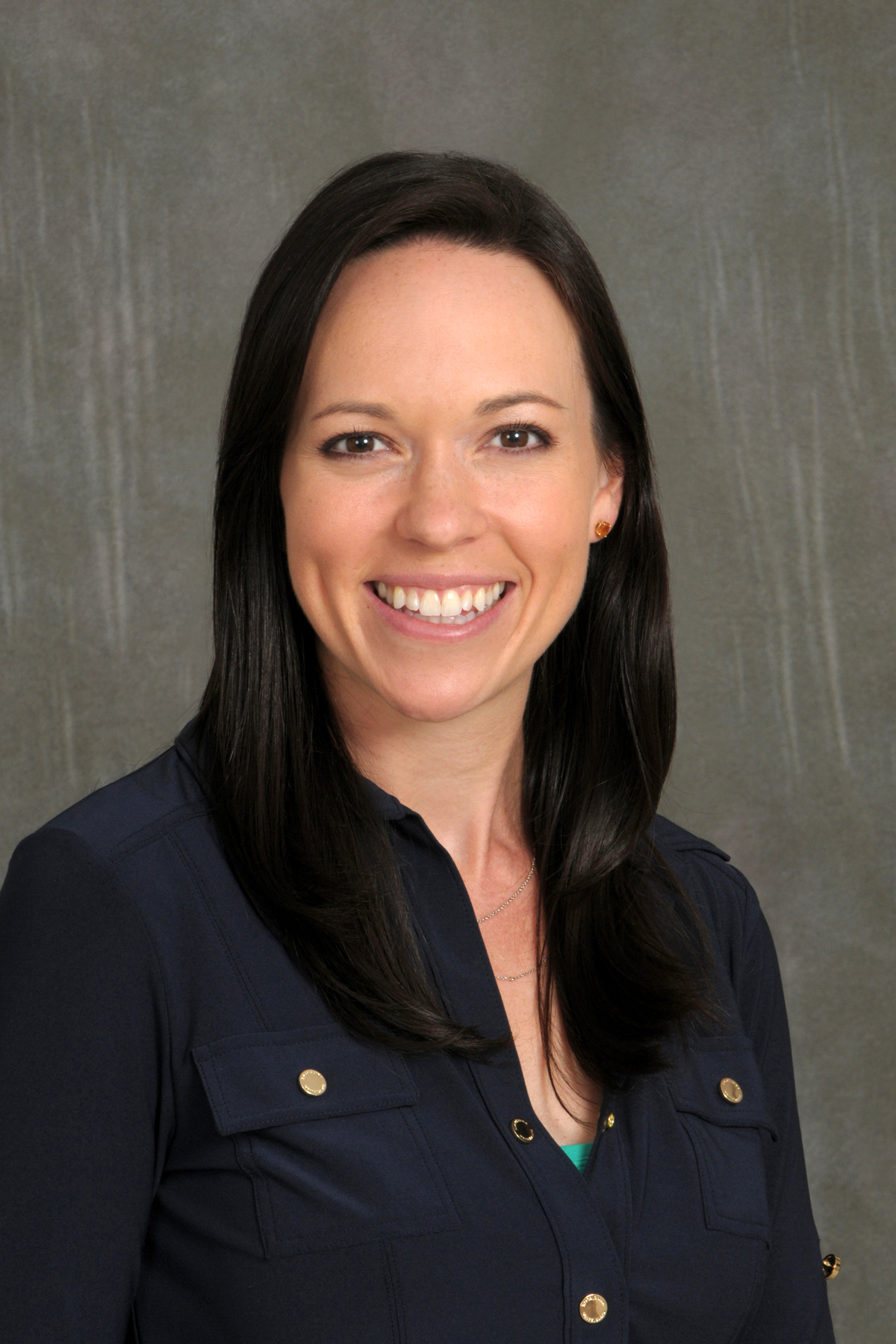 Deciding to pursue an MIS/Bariatric fellowship
was certainly not easy for me. While professionally, it seemed an
obvious choice, I was leaving my husband and family and moving states away
for a year. Within days of coming to Stony Brook University in New
York, I realize that my experience will be well worth the sacrifice.
Deciding to pursue an MIS/Bariatric fellowship
was certainly not easy for me. While professionally, it seemed an
obvious choice, I was leaving my husband and family and moving states away
for a year. Within days of coming to Stony Brook University in New
York, I realize that my experience will be well worth the sacrifice.Fellows Talk Fellowships: Did My Fellowship Make An Impact?
- "The interaction and experience that I received instilled in me confidence in my skill set and clinical skills. I was blessed to work with great surgeons and mentors."
-Former MIS Fellow from Amarillo, TX.- "My entire surgical career will be based on MIS procedures."
-Former MIS Bariatric Robotic Fellow from Atlanta, GA.- "I cannot say enough good things about the training I received. Worth it every minute!"
-Former Bariatric Fellow from Stamford, CT.- "The learning curve during fellowship was much steeper than during residency. Fellowship allowed me to develop skills that I wouldn't otherwise have today. My current career is defined by MIS and the fellowship training I received. Fellowship also helped me to advance the academic side of my career."
-Former MIS Bariatric Fellow, Dallas, TX.- "My fellowship was in advanced foregut MIS and HPB. I'm now finishing my last years of residency. It has made me much more skilled inside and outside of the operating room. It has opened opportunities for work down the road."
-Former HPB Fellow from Tampa, FL.- "Fellowship strengthened my skills which were inadequate following residency. I was able to introduce new procedures in several hospitals"
-Former Flexible Endoscopy Fellow from Great Falls, MT.- "The fellowship included both MIS and open procedures, including thoracic and esophageal work. This allowed me to be more 'polished' prior to starting a job."
-Former Thoracic Fellow from Tulsa, OK.
Back To Top
Recognizing Partners
Recognizing Partners: ASMBS
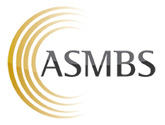 The
American Society of Bariatric and Metabolic Surgery (ASMBS) is the steward
of care for obesity by creating awareness, improving access, supporting
critical research, and educating medical, surgical and allied healthcare
professionals who take care of severely obese patients. As a result of the
ongoing efforts, bariatric surgery has evolved to become one of the most
popular and safest surgical procedures performed in the USA. In
conjunction with the American College of Surgeons and the Fellowship
Council, the ASMBS has implemented strict accreditation and certification
guidelines to ensure the at proper training is delivered to those surgeons
who will perform bariatric surgery. The Foundation for Surgical
Fellowships (FSF) was created in an effort to secure funding that can
support this surgical training. Though a blinded and peer review
application process, the FSF has distributed funds to qualified
institutions based on criteria of excellence. Since its inception, the FSF
has been responsible for supporting the fellowship training of many
Bariatric surgeons. The ASMBS is thankful to the FSF and it board members
for their role in helping ASMBS maintain bariatric surgical training and
ensure the best outcome in the care of severely obese patients.
The
American Society of Bariatric and Metabolic Surgery (ASMBS) is the steward
of care for obesity by creating awareness, improving access, supporting
critical research, and educating medical, surgical and allied healthcare
professionals who take care of severely obese patients. As a result of the
ongoing efforts, bariatric surgery has evolved to become one of the most
popular and safest surgical procedures performed in the USA. In
conjunction with the American College of Surgeons and the Fellowship
Council, the ASMBS has implemented strict accreditation and certification
guidelines to ensure the at proper training is delivered to those surgeons
who will perform bariatric surgery. The Foundation for Surgical
Fellowships (FSF) was created in an effort to secure funding that can
support this surgical training. Though a blinded and peer review
application process, the FSF has distributed funds to qualified
institutions based on criteria of excellence. Since its inception, the FSF
has been responsible for supporting the fellowship training of many
Bariatric surgeons. The ASMBS is thankful to the FSF and it board members
for their role in helping ASMBS maintain bariatric surgical training and
ensure the best outcome in the care of severely obese patients.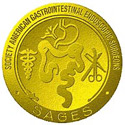 Society of American Gastrointestinal and Endoscopic Surgeons
(SAGES) role in the training of fellows is integral to both The Fellowship
Council and the establishment of the Foundation for Surgical Fellowships.
From the beginning of this important initiative for post-graduate training
it has been our role to assure the continuation of both organizations by
helping to secure the resources needed to keep them healthy.
Society of American Gastrointestinal and Endoscopic Surgeons
(SAGES) role in the training of fellows is integral to both The Fellowship
Council and the establishment of the Foundation for Surgical Fellowships.
From the beginning of this important initiative for post-graduate training
it has been our role to assure the continuation of both organizations by
helping to secure the resources needed to keep them healthy.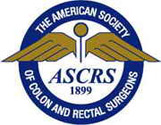 The
American Society of Colon and Rectal Surgeons is the premier society for
colon and rectal surgeons and other surgeons dedicated to advancing and
promoting the science and treatment of patients affected by colon and
rectal disease. The ASCRS is dedicated to assuring high quality patient
care by advancing the science through research and education. We are proud
to partner with the Foundation for Surgical Fellowships in initiatives
supporting the vision of the surgical community.
The
American Society of Colon and Rectal Surgeons is the premier society for
colon and rectal surgeons and other surgeons dedicated to advancing and
promoting the science and treatment of patients affected by colon and
rectal disease. The ASCRS is dedicated to assuring high quality patient
care by advancing the science through research and education. We are proud
to partner with the Foundation for Surgical Fellowships in initiatives
supporting the vision of the surgical community.by contributing to the
Foundation for Surgical Fellowships
11300 W. Olympic Blvd., Suite 600, Los Angeles, CA 90064
THANK YOU!
Celebrating
the Generosity of FSF Donors
2014 Honor Roll of Donors
Platinum
Benefactors


Silver Benefactors
Intuitive Surgical
KARL-STORZ Endoscopy-America, Inc.
Olympus America
Society of American Gastrointestinal and Endoscopic Surgeons (SAGES)
SAGES Foundation
Pon Satitpunwaycha
Titus Duncan
Patron
Ravi S. Chari
Eugene Cho
Edward
Felix
Dennis Fowler
Muhammad Jawad
Anthony Senagore
Bruce
Schirmer
Greg Stiegmann
Bruce G. Wolff
Ajay Upadhyay
Maurice Arregui
Michael Brunt
James Bittner
Ibrahim Daoud
Kenneth Forde
James Luketich
Rebecca Minter
Michele Riordon
Harvey Sugerman
Morris Franklin, Jr.
Alice Wei
Ralph Aye
Elizabeth & Thomas D’Amico
Marcelo Hinojosa
Moises Jacobs
J. Patrick O’Leary
Andrew Resnick
Donald Risucci
Richard Satava
Steven Wexner
